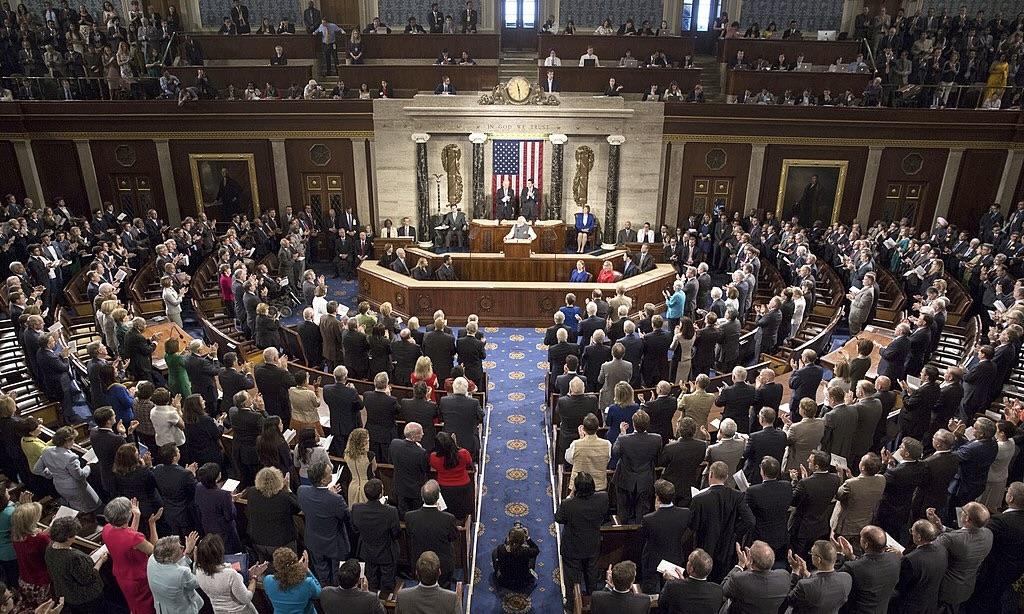The U.S. Congress has approved an $895 billion defense bill that includes a contentious provision restricting access to gender-affirming care for the children of service members. The measure, which forms part of the annual National Defense Authorization Act (NDAA), has sparked intense debate both in Washington and among advocacy groups nationwide.
The bill, which passed with bipartisan support, allocates funding for military operations, defense programs, and personnel. However, the restriction on gender-affirming care has become a focal point, with critics arguing it undermines the rights of military families and places undue burdens on LGBTQ+ individuals. Supporters maintain the measure is necessary to address concerns over medical policies involving minors.
“This legislation secures vital funding for our national defense while addressing key policy issues,” said House Armed Services Committee Chair Mike Rogers. “Taxpayer dollars must not fund experimental treatments on children.”
Opponents of the provision argue that gender-affirming care, which can include counseling, hormone therapy, and other treatments, is supported by medical experts and essential for the well-being of transgender youth. The American Medical Association and other leading health organizations have repeatedly stated that such care is critical for mental health outcomes in transgender individuals.
Critics Raise Concerns Over Impact on Military Families
The inclusion of the restriction has prompted backlash from advocacy groups, who argue it unfairly targets children of service members and may discourage military families from seeking necessary healthcare. Critics also question whether the measure could impact recruitment and retention, particularly as the military works to attract diverse personnel.
“This provision sends a chilling message to military families with transgender children,” said LGBTQ+ advocacy leader Sarah Adams. “It undermines trust in the system that is supposed to support those who serve our country.”
The defense bill’s overall funding reflects the nation’s growing military priorities, including investments in modernizing equipment, supporting overseas operations, and strengthening deterrence against geopolitical adversaries. Despite bipartisan agreement on broader defense spending, the gender-affirming care policy has become a political lightning rod, drawing attention to the intersection of social issues and military policy.
Public Reaction Fuels Online Debate
News of the defense bill’s passage and its controversial provision has ignited passionate discussions on social media, with users weighing in from both sides of the political spectrum.
User @PatriotDefenseUSA tweeted, “Congress did the right thing. Taxpayer dollars should never fund unproven medical procedures on kids.”
Conversely, @EqualityNow2024 argued, “This is a disgrace. Service members’ children deserve the same access to healthcare as everyone else.”
Supporter @SecureMilitaryRights wrote, “Our military needs focus, not political distractions. This bill prioritizes defense and fiscal responsibility.”
Meanwhile, @ProtectTransYouth commented, “This will hurt military families and transgender children. Lawmakers should listen to the experts on this.”
User @VeteransForJustice posted, “Targeting military families with transgender kids is unacceptable. These families sacrifice so much already.”
Lastly, @CommonSensePolicy tweeted, “Congress got this right. The focus should remain on military readiness, not controversial social policies.”
Path Forward and Challenges
The bill now heads to the White House, where President Joe Biden is expected to sign it into law, despite concerns over specific provisions. While the legislation secures critical defense funding, the debate over its policy implications is far from over.
Advocates have already signaled their intent to challenge the restriction on gender-affirming care in court, setting up what could be a lengthy legal battle. Military families impacted by the provision are also expected to seek support from advocacy groups and health organizations.
As the nation grapples with balancing military needs and social policy, the inclusion of such measures in defense legislation highlights the growing political tensions surrounding healthcare for transgender individuals.



 Israel Approves West Bank Measures Expanding Settler Land Access
Israel Approves West Bank Measures Expanding Settler Land Access  Trump Slams Super Bowl Halftime Show Featuring Bad Bunny
Trump Slams Super Bowl Halftime Show Featuring Bad Bunny  Ohio Man Indicted for Alleged Threat Against Vice President JD Vance, Faces Additional Federal Charges
Ohio Man Indicted for Alleged Threat Against Vice President JD Vance, Faces Additional Federal Charges  Sydney Braces for Pro-Palestine Protests During Israeli President Isaac Herzog’s Visit
Sydney Braces for Pro-Palestine Protests During Israeli President Isaac Herzog’s Visit  Trump Congratulates Japan’s First Female Prime Minister Sanae Takaichi After Historic Election Victory
Trump Congratulates Japan’s First Female Prime Minister Sanae Takaichi After Historic Election Victory  New York Legalizes Medical Aid in Dying for Terminally Ill Patients
New York Legalizes Medical Aid in Dying for Terminally Ill Patients  Antonio José Seguro Poised for Landslide Win in Portugal Presidential Runoff
Antonio José Seguro Poised for Landslide Win in Portugal Presidential Runoff  India–U.S. Interim Trade Pact Cuts Auto Tariffs but Leaves Tesla Out
India–U.S. Interim Trade Pact Cuts Auto Tariffs but Leaves Tesla Out  Trump Signs Executive Order Threatening 25% Tariffs on Countries Trading With Iran
Trump Signs Executive Order Threatening 25% Tariffs on Countries Trading With Iran  Trump Backs Nexstar–Tegna Merger Amid Shifting U.S. Media Landscape
Trump Backs Nexstar–Tegna Merger Amid Shifting U.S. Media Landscape  Trump Lifts 25% Tariff on Indian Goods in Strategic U.S.–India Trade and Energy Deal
Trump Lifts 25% Tariff on Indian Goods in Strategic U.S.–India Trade and Energy Deal  Ghislaine Maxwell to Invoke Fifth Amendment at House Oversight Committee Deposition
Ghislaine Maxwell to Invoke Fifth Amendment at House Oversight Committee Deposition  Trump Says “Very Good Talks” Underway on Russia-Ukraine War as Peace Efforts Continue
Trump Says “Very Good Talks” Underway on Russia-Ukraine War as Peace Efforts Continue  Bosnian Serb Presidential Rerun Confirms Victory for Dodik Ally Amid Allegations of Irregularities
Bosnian Serb Presidential Rerun Confirms Victory for Dodik Ally Amid Allegations of Irregularities  Trump’s Inflation Claims Clash With Voters’ Cost-of-Living Reality
Trump’s Inflation Claims Clash With Voters’ Cost-of-Living Reality  Bangladesh Election 2026: A Turning Point After Years of Political Suppression
Bangladesh Election 2026: A Turning Point After Years of Political Suppression  Netanyahu to Meet Trump in Washington as Iran Nuclear Talks Intensify
Netanyahu to Meet Trump in Washington as Iran Nuclear Talks Intensify 































